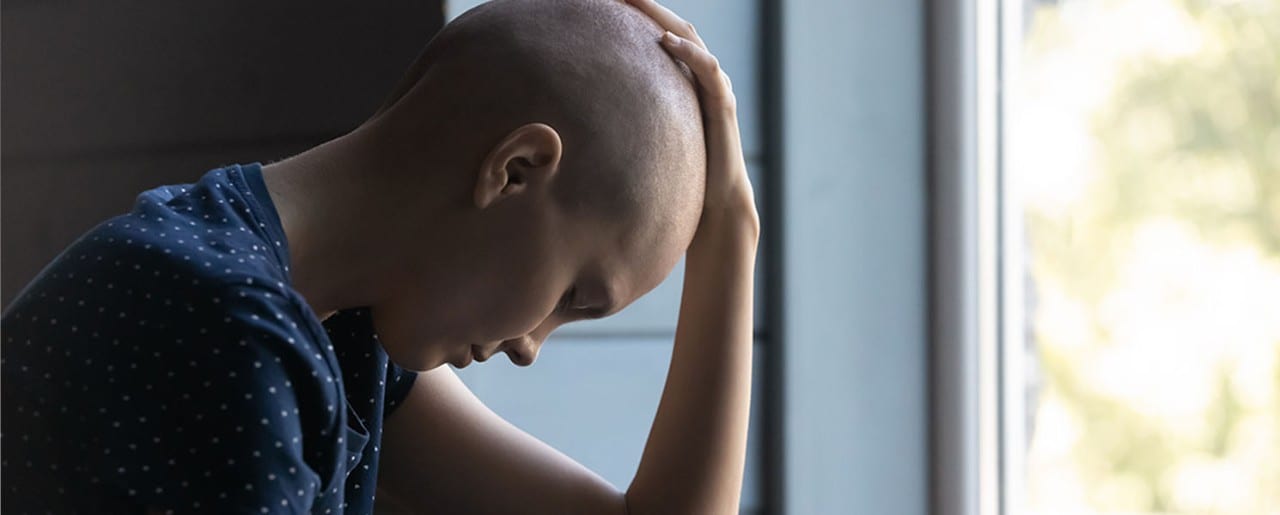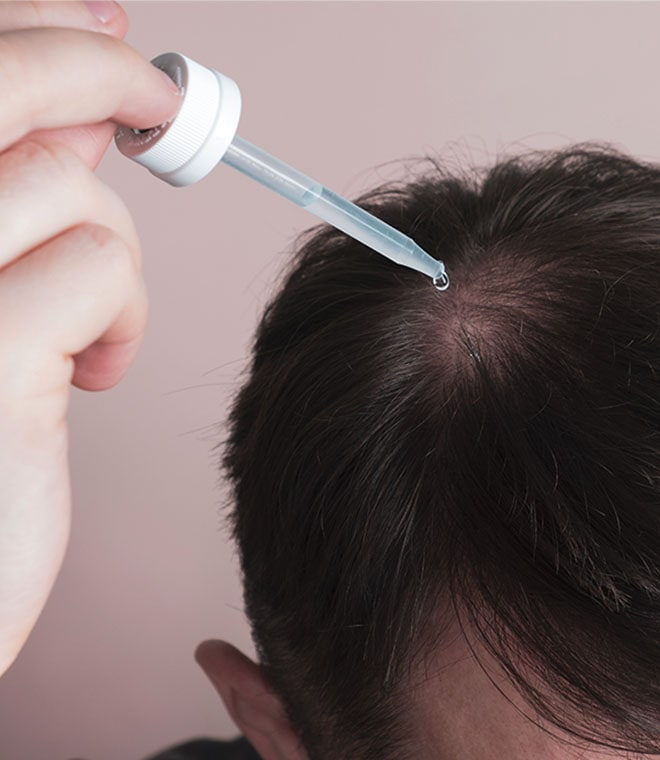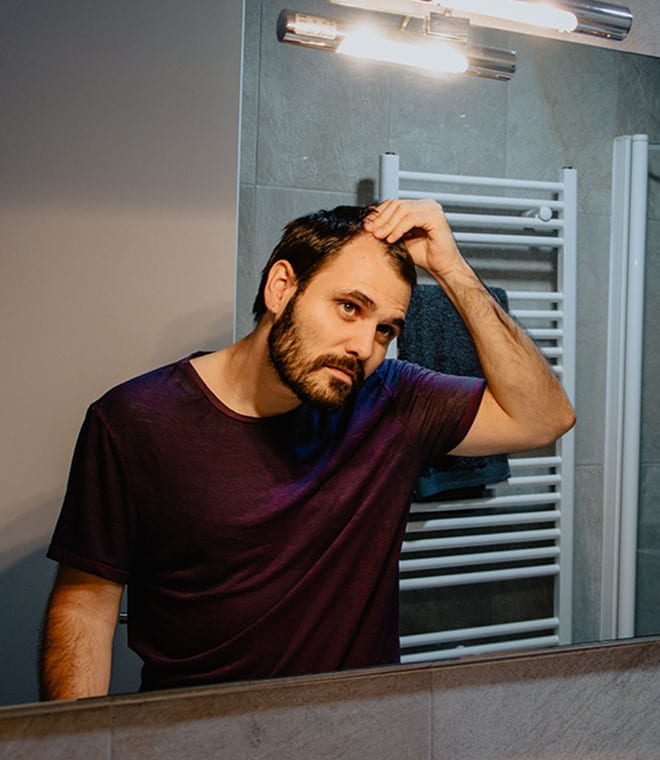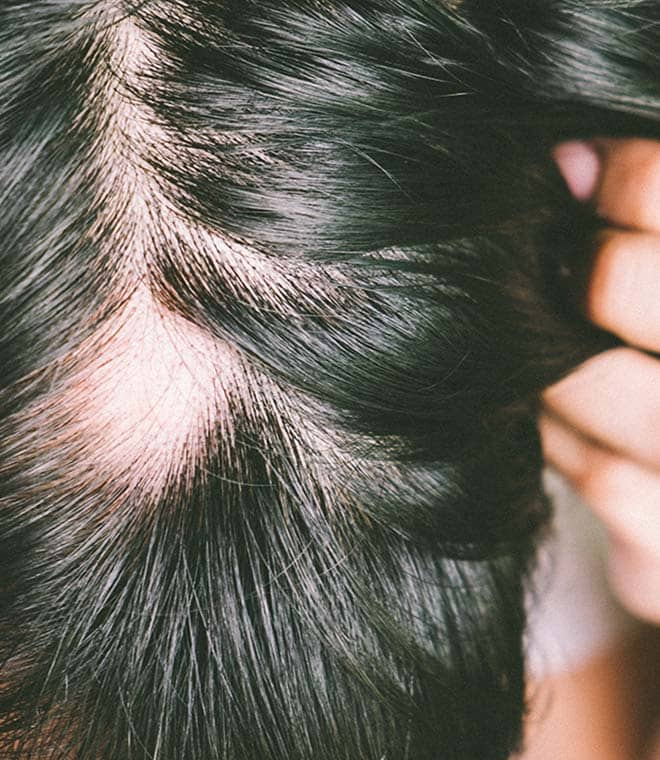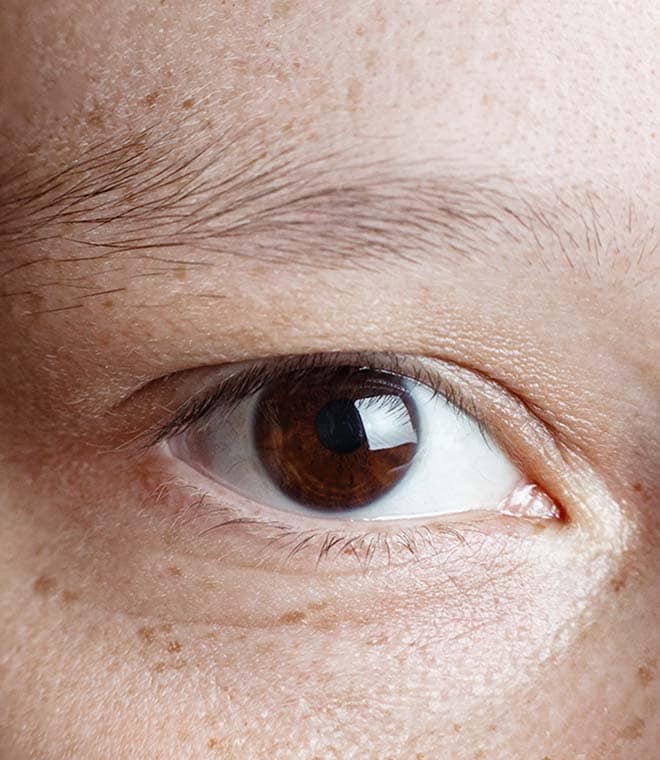Health
Cancer loss of hair: Causes, symptoms and treatments
By Anna H. Chacon, MD, Fellow of the American Academy of Dermatology Jan 28, 2025 • 8 min
Although cancer treatments may help save lives, they may also cause distressing side effects. Many people who begin cancer treatment have concerns about possible hair loss. Hair loss from cancer treatment varies from person to person and depends on many different factors, including the type of treatment and dose. You should always discuss any side effects that you may be experiencing during cancer treatment with your healthcare provider. They may be able to help lessen or possibly even prevent some symptoms.
Does radiation cause hair loss?
Radiation can cause hair loss in some cases. Whether radiation therapy leads to hair loss can depend on several factors, such as the type of radiation and the dose being given. If hair loss occurs, it is usually limited to the area being treated. For example, radiation therapy to the head can cause hair loss on the scalp.
Does chemo cause hair loss?
Chemotherapy can cause hair loss in some cases. However, not all chemotherapy drugs cause hair loss. The amount of chemo hair loss can range from mild shedding to complete baldness. Hair loss can depend on several factors, such as the dose and type of chemotherapy drug being used. Some chemotherapy drugs can cause hair loss on all parts of the body, not just on the scalp.
Radiation and chemo hair loss symptoms
Because the nature of the two cancer treatments is different, radiation and chemo hair loss may produce different symptoms:
Radiation hair loss
One to three weeks after the start of treatment, people undergoing radiation therapy may begin to notice hair loss. It typically progresses over time, and hair loss may not be obvious until one to two months following the start of therapy. You may find that the area where the hair loss occurred feels tender or sensitive.
The size of the area being treated and the intensity of the therapy often determine the amount of scalp hair a person loses. At low doses or in small areas, hair may simply thin. In other cases, a person may experience more significant hair loss that results in a bald spot or total baldness.
Chemo hair loss
For most people, chemo hair loss usually starts around two to four weeks following the start of treatment. Some people notice gradual loss, while others lose large chunks of hair. Scalp tenderness sometimes accompanies the loss. Normally, hair loss continues until a few weeks after treatment ends. With chemotherapy hair loss, total baldness may occur. You may also lose your eyelashes and eyebrows, in addition to pubic hair, underarm hair and hair on other areas of the body.
Does hair grow back after chemo or radiation?
Following chemotherapy, hair usually grows back. Hair growth after chemo usually restarts two to three months after treatment. Hair loss from low-dose radiation therapy is also typically temporary, with regrowth occurring within three to six months. At higher doses, hair loss may be permanent, or hair may grow back thinner.
Many people find that hair growth after chemo or radiation may be different from the way it was prior to treatment. Hair may come in curlier or appear a different color. In some cases, these changes are temporary. As the growth process continues, hair may gradually return to normal. While the hair regrows, the affected area may feel itchy.
Is there any way to prevent cancer treatment hair loss?
People facing chemotherapy or radiation treatment may hear of miracle products or home remedies that supposedly prevent hair loss. Unfortunately, there are no proven methods of stopping hair loss due to cancer treatment. Some studies suggest that wearing a cap filled with chilled liquid during chemotherapy may reduce hair loss. However, researchers cautioned that cooling the scalp might slightly increase the risk of scalp cancer, and there is not enough evidence to know for sure that cooling therapy is beneficial for everyone.
Healthcare providers sometimes advise patients to avoid chemical treatments like perms and color treatments prior to cancer treatment. They may also recommend using a gentle shampoo and conditioner and avoiding hair dryers, flat irons, curling irons and other thermal styling tools. While following these steps will not prevent hair loss, they can help lessen the damage to your hair.
Some people find that cutting their hair short or shaving their head prior to the start of therapy makes the loss less traumatic. You may also wish to shop for a wig or head coverings before treatment so that you’re prepared if hair loss does occur. If you do experience hair loss, always apply sunscreen or wear a head covering whenever you go outdoors.
How can I regrow hair after chemo or radiation?
Hair regrowth after chemo or radiation may take time. It’s important to be patient with your body and try to focus on the positive outcomes of treatment and celebrate the progress you’ve made. Some things you can do to help your hair health may include:
- Adopting a gentle hair care routine. You may try gentle shampoos and leave-in conditioners to keep any new growth hydrated.
- Avoiding products with harsh chemicals or ingredients such as permanent hair color or hot oil, which may cause damage to hair.
- Limiting the use of heat on your hair by skipping heat tools such flat and curling irons and trying to towel dry your hair before blow drying it on the lowest heat temperature.
- Eating a healthy diet with essential nutrients
- Talking to your healthcare provider about whether minoxidil may be beneficial for you. Minoxidil is a topical treatment for hair loss that has been shown to stimulate growth. You usually apply it in liquid solution or foam form two to three times per day. Studies indicate that the over-the-counter medication may enhance hair growth after chemo and radiation in some people.
Walgreens also offers the Feel More Like YouTM service at select stores, where specially trained pharmacists and beauty consultants may be able to help you manage side effects of treatment. Check with your local Walgreens for participating locations.
Updated by Julie McDaniel, MSN, RN, CRNI, January 2025.
Sources:
- https://www.cancer.org/treatment/treatments-and-side-effects/physical-side-effects/hair-loss/coping-with-hair-loss.html
- https://www.cancer.gov/about-cancer/treatment/types
- https://www.oncolink.org/support/side-effects/skin-hair-nail-side-effects/hair-loss-alopecia-from-radiation-treatment
- https://www.oncolink.org/support/side-effects/skin-hair-nail-side-effects/hair-loss-alopecia-from-chemotherapy
- https://www.mayoclinic.org/tests-procedures/chemotherapy/in-depth/hair-loss/art-2004692
- https://www.cancer.org/treatment/treatments-and-side-effects/physical-side-effects/hair-loss/cold-caps.html
- https://www.mskcc.org/cancer-care/patient-education/hair-loss-cancer-treatment
- https://www.aad.org/public/diseases/hair-loss/treatment/tips
